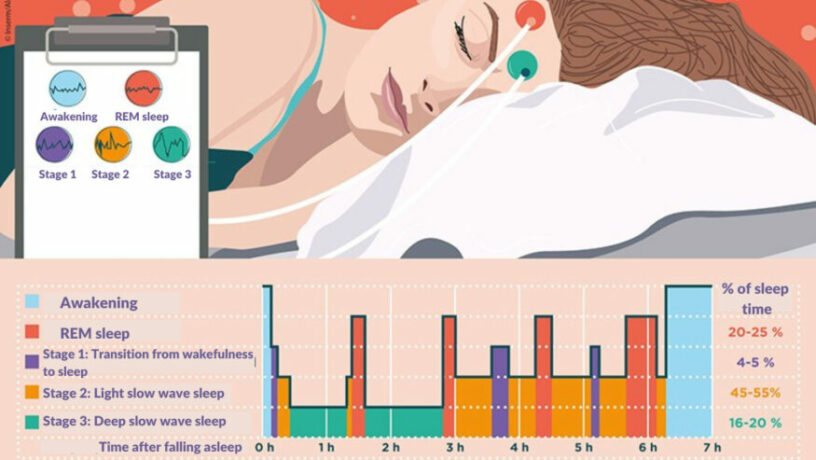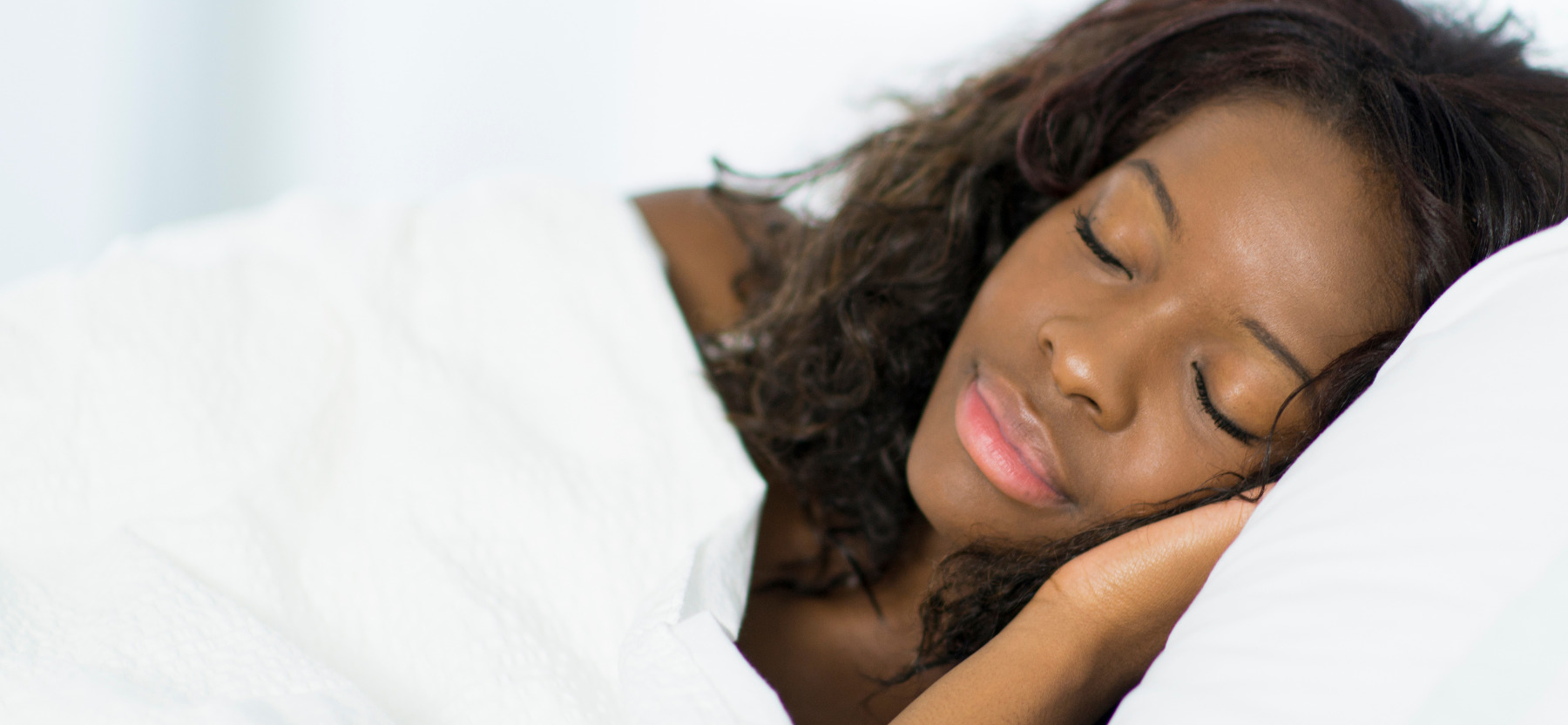At the moment I am exhausted. I don’t have good sleep : I only sleep 5 hours a night.
My sleep is not restful… Does this happen to you too?
Olà, this is Dr Joy ! In this article we will learn what a good sleep is, and give you some tips to sleep better. *Stretching* *blinking* *yawning*
Vamos!
So, what is it to sleep well ?
Apart from noting the number of hours of sleep, it is the number of sleep cycles that is important.
A cycle lasts on average 90 minutes and consists of several phases:
- Phase 1: falling asleep or light slow wave sleep (lasting 5 to 20 minutes)
- Phase 2: deep slow wave sleep
- Phase 3: REM sleep: the time when we dream. During this phase, the muscles are temporarily paralysed.
A good sleep is considered to consist of 3 to 5 cycles of 90 minutes.
The sleep rhythm is never the same. It can vary from one night to the next, but also over time. Slow wave sleep is deepest during development and until around the age of 20. The older we get, the less we enter this cycle. This gives way to a lighter, slow wave sleep, which explains the increase in sleep disorders with age.
Sleep is also induced by the secretion of a hormone, melatonin. It is called the sleep hormone, and is produced in dark settings, at the beginning of the night.
It will help you fall asleep and deteriorates with age, this is also why it can be more difficule to have a good night sleep when we get older.
On the other hand, if you tend to put off waking up, if every little thing irritates you, if you constantly wonder what you were doing or if you eat whatever you like, whenever you like, then the chances are that your sleep is not restful.
Sleep cycle graph

The impact of sleep on our well-being
Sleep impacts both our physical and mental well-being. Here are some of the risks of a lack of sleep or poor quality sleep:
- Increased risk of irritability and depressive symptoms
- Possible weight gain
- Increased cardiovascular risk
- Increased risk of developing type 2 diabetes
- Poor memory and concentration
- Learning disabilities
- Weakened immune system and increased risk of infection
3 alternatives to sleeping pills to sleep well
Before we suggest 3 alternatives to medication, it is important to note that your environment, hygiene and lifestyle play a role in your ability to sleep and recover well from a night’s sleep.
- A healthy lifestyle:
Let’s start with mealtimes: eat at least two hours before going to bed. Your brain needs energy during REM sleep, but digestion is harmful to sleep. Secondly, try to eat light meals, but not too light! It is important to eat starchy food with your soup. This facilitates the production of serotonin, which is essential for the secretion of melatonin. Finally, add foods rich in tryptophan to your meals. This amino acid also enables the production of serotonin. You will find it in nuts and almonds, dairy products, certain cereals and starches, as well as as in pulses. Also, avoid drinking stimulants such as coffee, tea, coke and other energy drinks at the end of the day and in the evening. They are a real plague for our sleep. For more information, don’t hesitate to ask a dietitian-nutritionist.
Physical activity also influences your sleep.
Playing sports, walking, swimming, etc. will help you sleep better. This allows you to have a better quality of sleep because of the energy expenditure, but also because it stimulates the secretion of hormones and thus better regulates the sleep/wake rhythm initiated by the circadian rhythm. By releasing dopamine, physical activity also provides a feeling of well-being and reduces stress levels. As a result, falling asleep is easier and waking up at night is less likely.
In order to do this, you can do 30 minutes of moderate physical activity per day.
Finally, the third factor to take into account for a sleep-friendly lifestyle is screens. Screens emit blue light that stimulates the retina and sends a “daytime” signal to the biological clock. This delays sleep by suppressing melatonin secretion. Even for a short time, they can affect your sleep. This is why it is recommended to stop using screens one hour before bedtime. The aim is to promote melatonin secretion and make it easier to fall asleep.
- Plants which help us sleep:
The plants used against sleep disorders are ones with sedative (calming) properties. You can find them alone or in synergy with other plants. The galenic forms vary: in tablets or capsules, in powders or infusions. You will find the form that suits you best.
The 3 plants we have selected are:
- Valerian: it improves the quality of sleep and makes it easier to fall asleep. For best results, use it for a course of at least 3 weeks.
- Hawthorn: it is ideal for calming nervousness and mild sleep disorders. It is best used in combination with other plants. It can be found in blends, but also alone, for example in herbal teas.
- Passion flower: it has sedative and calming properties. It is widely used in cases of insomnia and is often associated with hawthorn.
But there are many others (lemon balm, hops, peppermint, nettle, etc.) To help relaxation, you can combine them with magnesium. For more information, don’t hesitate to ask a naturopath or a micronutritionist for advice.
- Alternative medicines:
Depending on the causes of your poor sleep, different medicines can be used. We have chosen to propose 3 of them:
Sophrology, which is mainly used when sleep disorders are caused by anxiety, stress or an emotional problem. It is also recommended for chronic fatigue.
Osteopathy helps you to get back to sleep and to reduce the feeling of fatigue. It is an effective way of dealing with sleep disorders by acting on tensions and rebalancing the autonomic nervous system.
Acupuncture is a natural Chinese method that is performed with small needles. It can alleviate sleep disorders and rebalance sleep and rest quality.
At home, practising yoga or meditation can help you to calm down before going to sleep.
Now that we know all about sleep, I’m going back to bed. Aren’t you?
Boa noite!
Beijinhos.
This information is not a substitute for medical advice.
You must seek the advice of your doctor or another qualified health professional with any questions you may have regarding your health condition.



